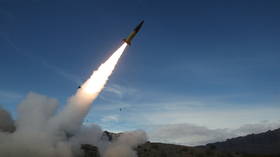U.S. uncertain about WW2 history
While many Americans recognise the huge cost paid by both the U.S. and the Soviet army in the fight against Nazi Germany, there are some who are unsure about which countries did what to defeat Hitler.
America knows how to honour its vets. Every year, tens of thousands of people come to pay their respects to those who died. 400,000 American soldiers lost their lives in the fight against Nazism.
The tragic scale of the losses had a profound impact on Steven Gilver, an artist and a major in the U.S. Air Force, but he says there is something many people tend to forget.
“Russia played an enormous role, although it's not commonly known around here and if it wasn't for the great efforts around Stalingrad or its tremendous sacrifices,” says Steven.
Meanwhile, veterans and their families, who saw the reality of the deadly war, say it took more than one country in the fight against tyranny.
Igor Belousovitch got to witness it first hand. He was still at college when the U.S. and Soviet troops shook hands on the banks of the River Elbe in 1945.
“In the distance all of a sudden we saw a line of horsemen and we knew these were the Soviets. We recognized each other immediately and they galloped up,” Igor recalls.
A son of Russian immigrants, Igor was the only one in his army patrol who spoke Russian. He was picked to be the interpreter.
63 years later, it is still the most important day of his life.
“It left behind a memory of comradeship and of an international effort. It really helped to improve relations between the Soviet Union and the United States. It's important to remember that once upon a time during the Cold War everyone remembered that we were allies and that only helped,” he believes.
As these stories reflect, it was a combined international effort that helped end the deadliest war of the 20th century – so that the millions who lost their lives did not die in vain.












